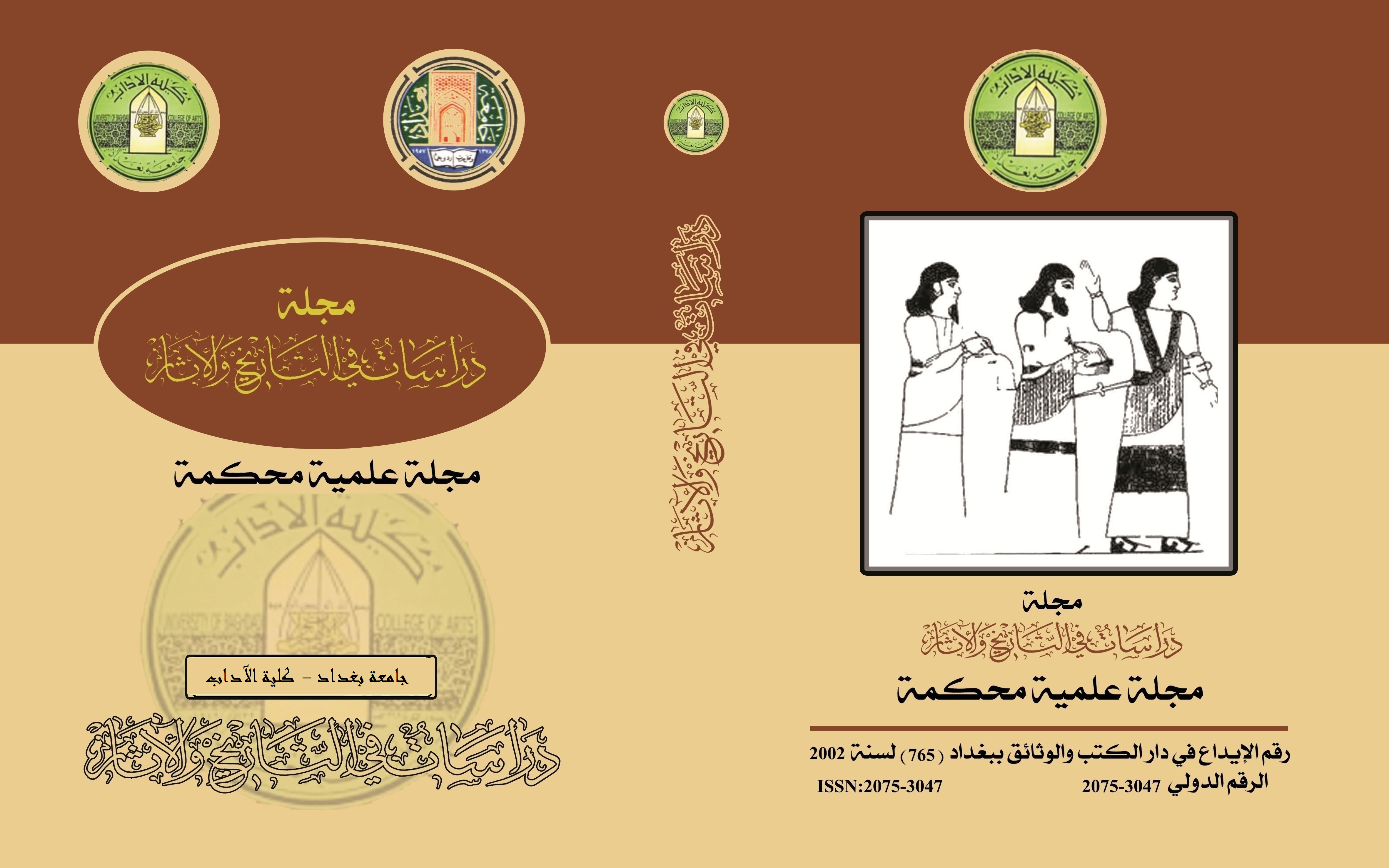جرائم حزب البعث ضد الكرد الفيلية
الكلمات المفتاحية:
جرائم، حزب البعث، الكرد الفيليةالملخص
"تهدف الدراسة الى ابراز حكم حزب البعث العربي الاشتراكي في العراق والتصفيات السياسية القاسية بحق الكرد الفيلية، حيث تعرضت هذه الأقلية لاضطهاد منهجي بسبب انتمائها العرقي والمذهبي. بدأت حملة التصفيات في سبعينيات القرن الماضي، حيث اتهم النظام الكرد الفيلية بالتجسس لصالح إيران خلال فترة التوترات العراقية الإيرانية. تم تهجير آلاف العائلات الكردية الفيلية قسراً من بيوتهم، وتمت مصادرة ممتلكاتهم، وتجريدهم من الجنسية العراقية. لم تقتصر هذه الانتهاكات على التهجير فحسب، بل شملت أيضًا الاعتقالات التعسفية والإعدامات الجماعية. اختفى العديد من الشبان الفيلية قسرًا، ولم يعرف مصيرهم حتى اليوم. كانت هذه الحملة جزءاً من استراتيجية أوسع للنظام البعثي تهدف إلى تغيير التركيبة الديموغرافية للمناطق الحدودية وضمان السيطرة الكاملة للحكومة المركزية، استمر نظام حزب البعث في اضطهاده للكرد الفيلية طوال فترة حكمه، مع تفاقم الأوضاع خاصة خلال الحرب العراقية الإيرانية (1980-1988). اتهم النظام البعثي الكرد الفيلية بالولاء لإيران نظرًا لانتمائهم للمذهب الشيعي، مما جعله يعتبرهم تهديدًا داخليًا لأمن الدولة. قامت السلطات باعتقالات جماعية في صفوف الكرد الفيلية، وتعرض المعتقلون للتعذيب وسوء المعاملة في السجون، وغالبًا ما كانت تُصدر بحقهم أحكامًا بالإعدام دون محاكمات عادلة، بالإضافة إلى ذلك، عمد النظام إلى تشويه الهوية الثقافية للكرد الفيلية من خلال حظر استخدام اللغة الكردية ومنعهم من ممارسة تقاليدهم وثقافاتهم. تم تغيير أسماء القرى والمدن التي يسكنها الكرد الفيلية إلى أسماء عربية في محاولة لطمس هويتهم. كما تعرضت النساء والأطفال لنفس درجات الاضطهاد، حيث فقد الكثيرون أفراد عائلاتهم بين ليلة وضحاها دون أي معلومات عن مصيرهم، انتهت فترة حكم البعث بسقوط النظام في عام 2003، ليكتشف بعدها حجم المأساة التي عاشها الكرد الفيلية. وجدت المقابر الجماعية التي تضم رفات العديد من ضحايا الإعدامات، وتم الكشف عن الوثائق التي تؤكد الجرائم المرتكبة بحقهم. بالرغم من التغيرات السياسية التي شهدها العراق بعد سقوط النظام، لا يزال الكرد الفيلية يعانون من تبعات تلك الحقبة الأليمة، حيث يواصلون السعي لاستعادة حقوقهم وممتلكاتهم وجنسياتهم التي سُلبت منهم ظلماً.
المراجع
( ) مؤيد السعيد، جرائم حزب البعث-جرائم ضد الإنسانية، دار الوارث للطباعة والنشر، بغداد، 2020م، ص124.
( ) محمد الامين زكي بك، خلاصة تاريخ الكرد وكردستان من أقدم العصور التاريخية حتى الآن، تقديم: كمال مظهر احمد ، ترجمة: محمد علي عوني ،دار الشؤون الثقافية العامة ، 2005م ، ص 280.
( ) زكي جعفر العلو ي ، الكُرد الفيليون عراقيون بلا هوية ، انتشارات مخطوط ، قم ،2023 ،ص229.
( ) احمد ناصر الفيلي واخرون ، الفيليون...الانتماء والمحنة جريمة تهجير الكورد الفيليين ،سلسلة إصدارات الهيئة الوطنية العليا للمساءلة والعدالة، بغداد ،2014م ،ص172.
( ) فيلي ، كي لا ننسى …سمير مير غلام ، تنوع نيوز ،17/7/2020 ، .https:// tanawue.com/html
( )علي جزيري، الكرد وكردستان، مطبعة جامعة صلاح الدين ، أربيل ، 2017,ص191.
( ) مؤيد السعيد، المصدر السابق ،ص126.
( ) وثائق دار الشهداء، الوثيقة رقم 13038، صادرة عن: مديرية أمن محافظة بغداد، بتاريخ 17،3،1982.
( ) مؤيد السعيد، المصدر نفسه ،ص126.
( ) جلال سلمان الجصاني ،المسيرة الدامية للكرد الفيلية ،مكتبة الثقافة ،بغداد ،2010 ،ص140.وايضاً ؛ نجم سلمان مهدي الفيلي ،الفيليون ، دار ئاراس للطباعة والنشر ،ط2 ، بغداد ، 2009، ص
( ) عبد الجليل فيلي, (اللور) الكورد الفيلييون في الماضي والحاضر ,مالمو،1999م ، ص102.
( ) محمد سعيد الطريحي، الشيعة الأكراد الكورد فيلية، دار نينوى للدراسات والنشر والتوزيع، دمشق ، 2013 م، ص645.
( ) وثائق مؤسسة الشهداء العراقية ، كتاب مديرية الامن العامة المرقّم (73) الصادر في 1980.
( ) وثائق مؤسسة الشهداء العراقية ، كناب مديرية الامن العامة المرقّم (137) الصادر في 1980
( ) وثائق مؤسسة الشهداء العراقية , كتاب الامن العامة ،المرقم (162) الصادر في 1981.
( ) وثائق مؤسسة الشهداء، كتاب كتاب وزارة الداخلية العراقي ذو العدد(43) لسنة 1963.
( ) فرهاد إبراهيم,الطائفية والسياسة في العالم العربي , مكتبة مدبولي ,سوريا 1996, ص 359.
( ) نجم سلمان مهدي ,من هم الفيليون ,دار الشمس للنشر ,ستوكهولم , السويد , 2001 ,ص.58
( ) وثائق مؤسسة الشهداء العراقية ، قرار مجلس قيادة الثورة المرقّم (150) والصادر في 28/1/1980،
( ) وثائق مؤسسة الشهداء العراقية , قرار مجلس قيادة الثورة المرقّم (474) الصادر في 15/4/1981،
( ) وثائق مؤسسة الشهداء العراقية , قرار مجلس قيادة الثورة رقم(1610)، 1982م.
( ) وثائق مؤسسة الشهداء العراقية ، كتاب حزب البعث العربي الاشتراكي ذو العدد 33138/3 في 14/11/1983.
( ) وثائق مؤسسة الشهداء العراقية ’ قرار مجلس قيادة الثورة رقم (199) لسنة 2001.
التنزيلات
منشور
إصدار
القسم
الرخصة

هذا العمل مرخص بموجب Creative Commons Attribution 4.0 International License.
:حقوق الطبع والنشر والترخيص
بالنسبة لجميع البحوث المنشورة في مجلة دراسات في التاريخ والآثار، يحتفظ الباحثون بحقوق النشر. يتم ترخيص البحوث بموجب ترخيص Creative Commons CC BY 4.0 المفتوح ، مما يعني أنه يجوز لأي شخص تنزيل البحث وقراءته مجانًا. بالإضافة إلى ذلك ، يجوز إعادة استخدام البحث واقتباسه شريطة أن يتم الاستشهاد المصدر المنشور الأصلي. تتيح هذه الشروط الاستخدام الأقصى لعمل الباحث وعرضه.
:إعادة إنتاج البحوث المنشورة من الناشرين الآخرين
من الضروري للغاية أن يحصل الباحثون على إذن لإعادة إنتاج أي بحث منشورة (أشكال أو مخططات أو جداول أو أي مقتطفات من نص) لا يدخل في نطاق الملكية العامة أو لا يملكون حقوق نشرها. يجب أن يطلب الباحثون إذنًا من مؤلف حقوق النشر (عادة ما يكون الناشر).
يطلب الإذن في الحالات التالية:
بحوثك الخاصة المنشورة من قِبل ناشرين آخرين ولم تحتفظ بحقوق النشر الخاصة بها.
مقتطفات كبيرة من بحوث أي شخص أو سلسلة من البحوث المنشورة.
استخدم الجداول والرسوم البيانية والمخططات والمخططات والأعمال الفنية إذا لم يتم التعديل عليها.
الصور الفوتوغرافية التي لا تملك حقوق لنشرها.
لا يطلب الإذن في الحالات التالية:
إعادة بناء الجدول الخاص بك مع البيانات المنشورة بالفعل في مكان آخر. يرجى ملاحظة أنه في هذه الحالة يجب عليك ذكر مصدر البيانات في شكل "بيانات من ..." أو "مقتبس من ...".
تعتبر عروض الأسعار القصيرة معقولة الاستخدام العادل ، وبالتالي لا تتطلب إذنًا.
الرسوم البيانية ، الرسوم البيانية ، المخططات ، الأعمال الفنية التي أعاد الباحث رسمها بالكامل والتي تم تغييرها بشكل ملحوظ إلى درجة لا تتطلب الاعتراف.
الحصول على إذن
لتجنب التأخير غير الضروري في عملية النشر ، يجب أن تبدأ في الحصول على أذونات في أقرب وقت ممكن. لا يمكن لمجلة الآداب نشر بحث مقتبس من منشورات أخرى دون إذن.
قد يمنحك مالك حقوق الطبع والنشر تعليمات بشأن شكل الإقرار الواجب اتباعه لتوثيق عمله ؛ بخلاف ذلك ، اتبع النمط: "مستنسخ بإذن من [المؤلف] ، [كتاب / المجلة] ؛ نشره [الناشر] ، [السنة]." في نهاية شرح الجدول ، الشكل أو المخطط.



















